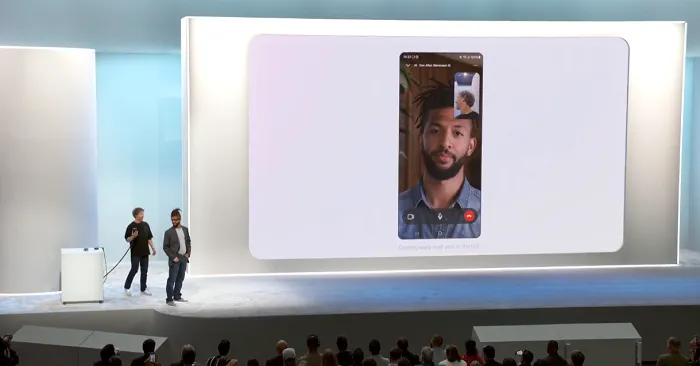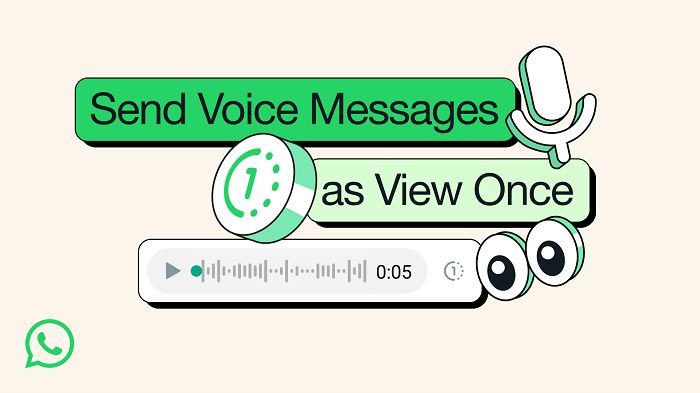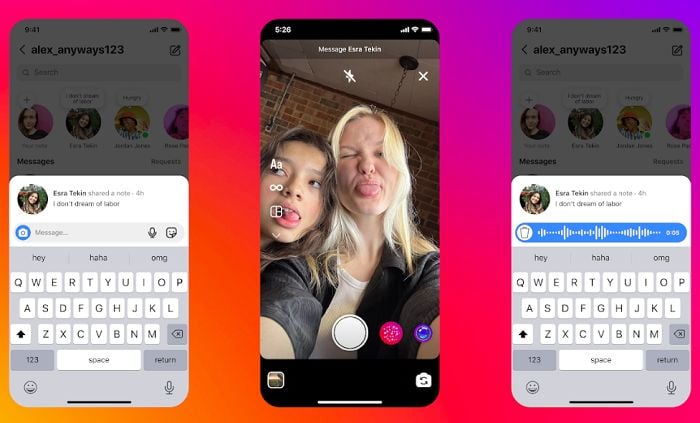For all the hype around AI, and the undeniable potential in various applications, it sure does seem like social apps are grasping for truly valuable use cases.
Or maybe I’m just not seeing it yet, but for me, AI bots that reply in the style of celebrities, or in the voice of celebrities, as per Meta’s latest update, really aren’t it.
Meta’s initial experiment with celebrity-styled AI chatbots in text form failed to resonate with users, which led to it recently shutting down that project.
Because it’s not that interesting, right? A chatbot that gives you the impression that you’re speaking to some celebrity isn’t particularly engaging when you know that it’s not really that celebrity, or indeed any human at all, at the other end of the discussion. It’s just you speaking to the Matrix, and the codebase calculating then returning your answers.
That’s also true for celebrity voiced bots, because whether its dressed up as Billie Eilish, or just responses attached to some generic profile pic, those answers are still gonna be the same. Sure, hearing John Cena respond to random questions is going to be funny among your friends, but that novelty’s going to wear off pretty quick. And again, then it’s just you giggling to yourself. Or maybe trying to convince yourself that you actually are friends with Kristen Bell as her robot voice rings in your ears.
It’s also not social, at least not in the way that we generally understand that term. Social generally refers to human connection, which the whole concept of social media was founded upon.
These offerings are not social, in fact they’re the opposite, in that they invite engagement with nobody else.
And while, again, you might be able to develop a form of relationship with an AI system (and some people already have), that also seems potentially unhealthy, and not something that we should be looking to build for, at least till we know the potential dangers of such.
But that’s not even the limit of Meta’s AI bot projects.
In his Connect keynote yesterday, Meta CEO Mark Zuckerberg also previewed the next stage of the company’s AI character platform, which will eventually enable creators to build AI versions of themselves in video form.
So you could be video chatting to your favorite celebrity, and they’ll be able to answer any question you ask them.
Cool, right?
Except, again, this is not actually social, in that you’re not engaging with other people, and it’s not really anything at all. It’s just a video game, with real life characters, which will increasingly look and sound like people you recognize.
And that’s not what the allure of social media has traditionally been.
One of the key benefits of social media is that it does enable you to connect with people from all walks of life, and celebrity connection has played a big part in that. Before social media, your chances of ever engaging with your favorite stars was slim-to-none, but now, you can send them a post or DM, and there’s a slightly better chance that they might actually acknowledge you.
That’s been a valuable driver of fan engagement, and building an audience, but soon, you won’t know whether it was actually them, or an AI bot. Which could actually erode the whole experience.
Though human-like bots of this type have become popular in one format: live shopping streams in China.


The presenters in these examples are all AI-generated bots, which enable brands to sell their products, 24/7, via live streams on Douyin (the local version of TikTok).
As reported by MIT Technology Review:
“Since 2022, a swarm of Chinese startups and major tech companies have been offering the service of creating deepfake avatars for e-commerce livestreaming. With just a few minutes of sample video and $1,000 in costs, brands can clone a human streamer to work 24/7.”
With this, the business simply provides the script and the product details, and the virtual streamer will sell things on their behalf. More advanced versions can even scan the comments for certain responses, and engage with viewers, while they can also change approaches based on how many viewers they have at any given time.
So there is a demand, in some form, for these types of digital doppelgangers. But then again, live shopping hasn’t caught on in Western markets, and it doesn’t seem like this is going to be the trigger that pushes it to the next stage.
Essentially, Meta’s still throwing AI ideas at the wall, and seeing what sticks. But I just don’t see how moving away from the “social” aspects of its products is a viable strategy for future usage.
Encouraging more bots pretending to be humans seems like a pathway to a less engaging social media environment. Yet, at the same time, Zuck himself recently noted that, in his view:
“Every part of what we do is going to get changed in some way [by AI]. [For example] feeds are going to go from – you know, it was already friend content, and now it’s largely creators. In the future, a lot of it is going to be AI generated.”
So Meta believes that more and more AI-generated content is coming to our social feeds, one way or another.
Is that a good thing? Will that drive more engagement?
AI as a practical assistant that can help you uncover relevant answers is one thing, but AI as an engagement option? A virtual relationship?
That feels like something else.














